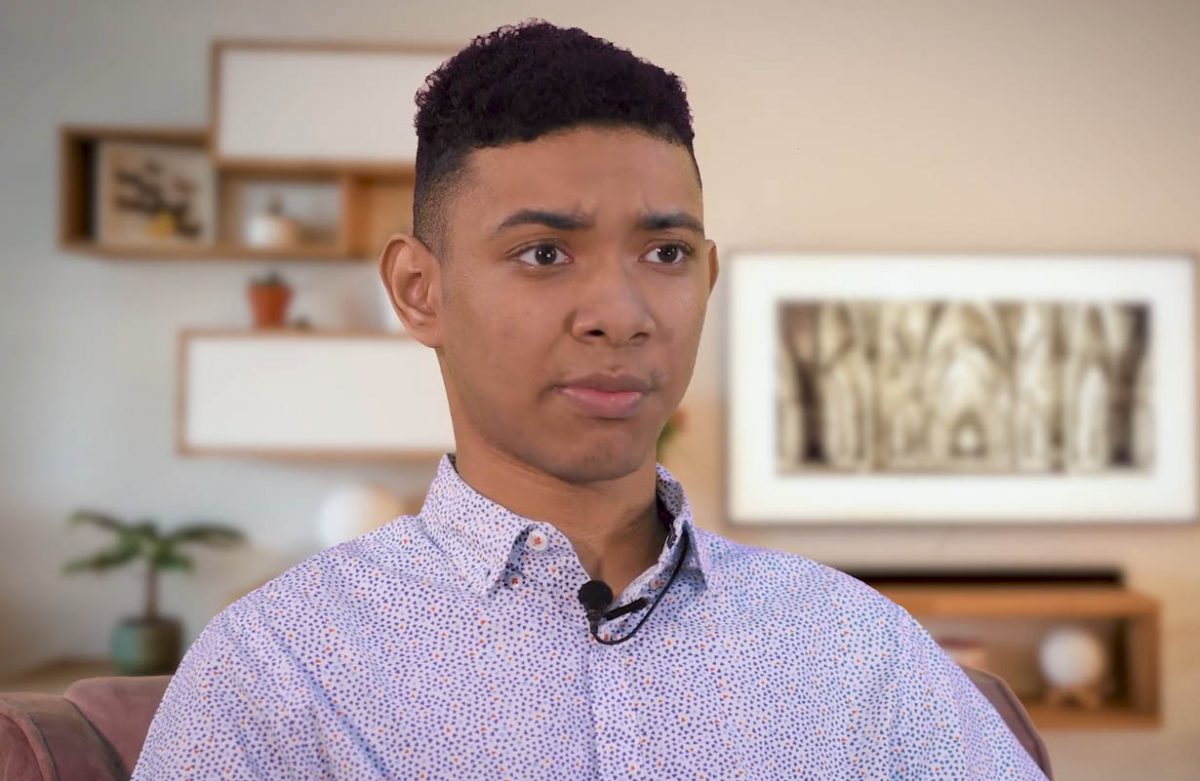Darrin Hall is on the autism spectrum. He is 19 years old and he is a student of the University of Guyana, who hopes to encourage others to reach their full potential.
Hall said he was somewhere between the ages of three to five years old when his parents realised that there was something wrong; he could not form full sentences. Desperate for an answer as to what was affecting their child’s growth, they took him to various doctors across Georgetown before he was finally diagnosed.
Hall recalled doing speech therapy at the Georgetown Public Hospital (GPH). He said it was there that he learnt to speak and grow.
Finding a school when it was time to begin his primary education was a bit more difficult. He recalled attending a few different schools but being rejected due to his lack of communication and social skills, until his parents heard of the Special Education Unit at the School of the Nations. Being there with others just like him or who had other special needs made him feel included and heard. “I have to praise that school for allowing inclusive learning, I’ll hold it near and dear to my heart,” he said.
After two years in the Special Education Unit, he was transferred to what he described as a “normal learning environment” in his third year of primary school, when things took an interesting turn.
Hall said he was hyperactive, did not pay attention in class and sometimes slept during class hours. One day, his super hyperactiveness prompted him to run out of class into the pouring rain, which led to a teacher having to chase him back into the classroom.
He said he had a moment of self-reflection on just how problematic he was.
He said he was quickly reassured by both his parents and teachers that he wasn’t problematic but rather he lacked self-control, and it hit him that he needed to put more time and effort into his education. In grades three to six his progress improved dramatically. “It actually went into overdrive but that’s when I found the best version of myself as it related to primary school life,” he said.
Hall described his secondary school life as the start of his mature phase. He was optimistic about what the new educational journey would bring. He liked helping others and putting others before himself. He would help others after classes with their projects to the best of his ability and also help out in the gymnasium during physical education (PE). His efforts did not go unnoticed and he received the Citizenship Award at the end of the school year.
In Second Form he joined the Interact Club. As time progressed he became the president of the Interact Club which is an honour for him to this day.
When asked if he was a target for bullies, he said “I wouldn’t say it was bullying but rather after people discovered my autistic tendencies they started treating me differently.”
He became known as the odd one out. This resulted in him not having many friends or being invited to events outside of the organisation or family gatherings. He recalled being invited to a birthday celebration once.
During PE, he was always the last to be picked on teams. This made him sad.
Due to his kindness, he was taken advantage of; he did whatever was asked of him and tried to help as much as he could with the hope of building friendships. It never worked in his favour.
Today, however, former classmates and schoolmates are taking notice of his progress. He said he hoped they would see his interview stating, “I am thankful for all the time that I spent with them whether they knew me or not.
At one time I was your classmate or friend and I am very grateful to have had that experience.”
He particularly wanted to thank two teachers who mentored and offered him emotional support.
“Not many see autism for what it is, but as a mental disability or that autistic people should be in a mental hospital,” Hall said. He wants to encourage citizens to view autistic people as having been made normal but coping, learning and behaving differently than others.
He said people would oftentimes use autism as an insult and as such he regards himself as an advocate for children with autism.
His advice is that they should not let anyone say who they are meant to be in this world.
“Even if you are high functioning, low functioning or Asperger’s nonverbal prove them wrong,” Hall stressed. “Cope, accept and focus on what makes you unique, work hard and maybe one day you can contribute to society.”
As for him, he wants to keep on working hard during his transition to the Turkeyen campus come next September where he will be pursuing his LLB.






